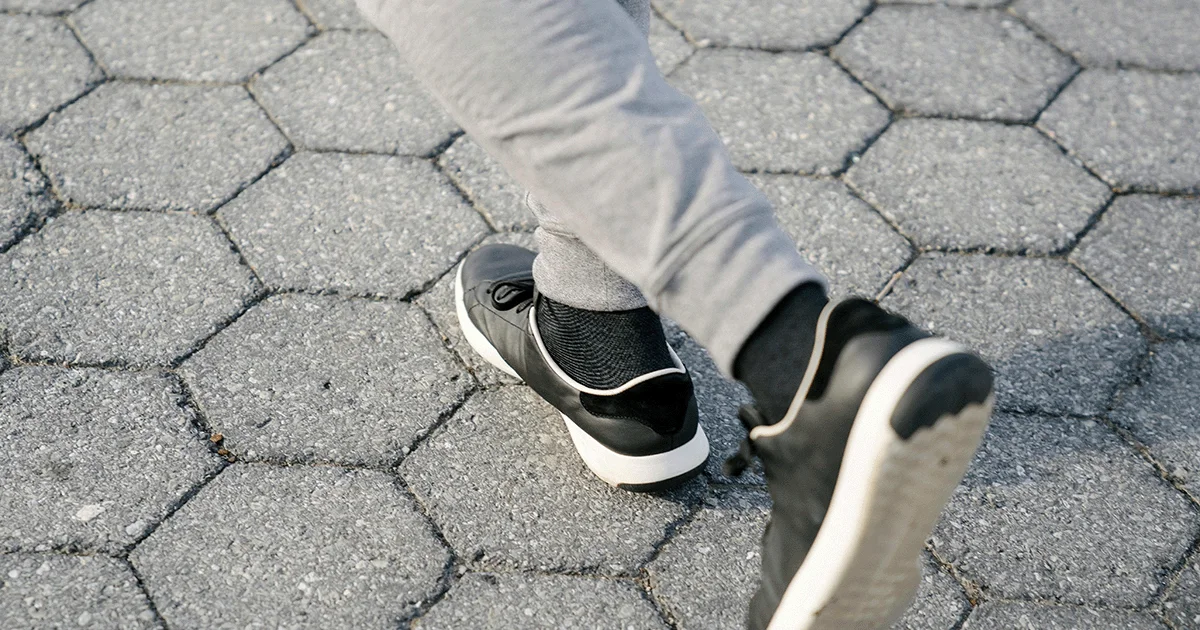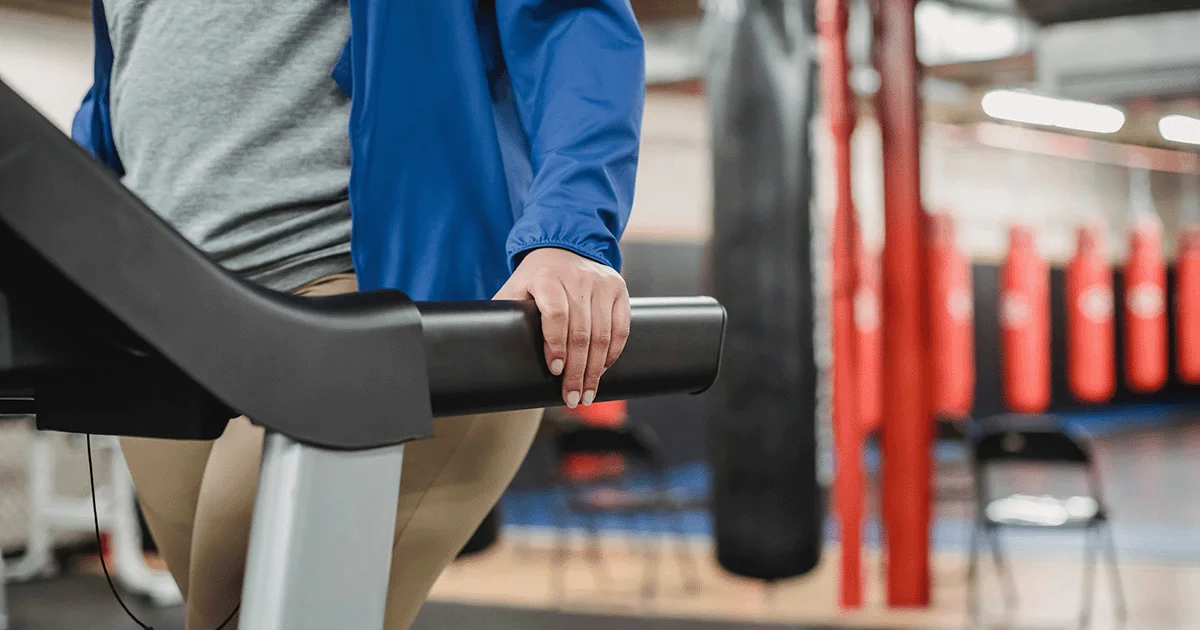Here's what we'll cover
Here's what we'll cover
Here's what we'll cover
You may be wondering what water weight is and whether you have ever felt its effects. Chances are you have. You go to put on your favorite pair of jeans that you wore a few days ago, and they suddenly refuse to zip up. Or perhaps your rings don’t fit on your fingers. The most likely culprit of these sometimes distressing occurrences is water weight.
Continue reading below to find out more about water weight, its causes, and what you can do about it.
What is water weight?
Water weight (or water retention) happens when your body holds on to excess water instead of getting rid of it through urination. Our bodies contain approximately 60% water, mixed with electrolytes like sodium, potassium, etc. Your kidneys have a complex filtration system to maintain fluid balance; urination removes excess water and electrolytes (Brinkman, 2020).
Most of the time, the flow of water in your body usually follows the movement of electrolytes. For example, if you are holding on to excess sodium, your body will also hold onto extra water, leading to water retention or increased water weight, which can cause bloating (Brinkman, 2020).
Edema is the medical term for swelling caused by excess water held in your body’s tissues. It can be mild, as in the case when your jeans or rings are too tight. However, in some medical conditions, edema may be significant, requiring urgent medical care.
Sudden onset of swelling and pain in one leg is very concerning, as it may be a sign of a blood clot in your leg veins, also called a deep venous thrombosis (DVT). Edema can build up in the lungs (pulmonary edema) due to a blood clot or heart problems and cause difficulty breathing. Severe edema could be a sign of heart failure or kidney failure, and you should see your healthcare provider right away if you experience this (Smith, 2021).
In most cases, though, small fluctuations in water weight are normal and can be managed with some simple strategies.
Causes of increased water weight
As mentioned above, certain medical conditions can cause significant water retention that requires medical attention. However, the mild fluid retention leading to bloating and keeping your clothes from fitting is often due to everyday causes, like hormones, diet, and physical activity.
Hormonal changes
Many people who experience a monthly menstrual cycle have bloating (or “puffiness”) and weight gain, either before their period starts (premenstrual) or in the first few days of their period.
Estrogen and progesterone can affect your fluid balance and lead to increased water weight. Studies suggest that these hormones change your body’s regular “set points” for water and sodium movement. Most of the time, the excess water weight improves after your period starts, and things return to normal (White, 2011).
Pregnancy is another time when hormonal changes lead to excess water weight. Many pregnant women have swollen fingers, ankles, etc., due to the extra water in their bloodstream.
Diet
You may not realize how much your diet can impact water weight and fluid retention. Eating too much salt, like chips, fast food, etc., increases your sodium intake. Extra salt affects your fluid balance, and your body responds by holding on to excess water to even things out, leading to bloating. Processed foods, like sausages, mayonnaise, pizza, cookies, etc., have added sugar and sodium to help with taste and shelf-life. The extra salt and sugars cause your body to retain water, and can affect your blood pressure and heart health (Srour, 2019).
Excess carbohydrates in your diet can also contribute to bloating and water weight. Like sodium, carbohydrates in your bloodstream bring water along with them. The liver stores extra carbs as glycogen, which carries water with it—approximately 3 grams of water for every gram of glycogen. Diets higher in carbohydrates can lead to increases in water weight (Osterberg, 2010).
But not all carbohydrates contribute to excess water weight—fibers are beneficial because they draw water into the intestines and allow for more regular bowel movements. Diets rich in fiber are good for your heart and may help with weight loss (if weight loss is one of your goals) (Akbar, 2020).
Physical activity
If you live a sedentary lifestyle or sit at a desk all day, you may have excess water weight. Moving your muscles during physical exercise promotes blood circulation, not just to your heart, but also to your kidneys. Better blood flow through your kidneys can improve their ability to get rid of excess water.
Gravity also plays a factor. If you sit or stand in relatively the same position all day, excess water can accumulate in your ankles. Moving your leg muscles by getting up and walking around helps to pump the blood around and keeps excess fluid from pooling due to gravity.
Medications
Some medications, both prescription and over the counter, can cause water retention as a common side effect, including (Sterns, 2020-b):
Diabetes medications like pioglitazone or rosiglitazone
Calcium-channel blockers like amlodipine, diltiazem, verapamil, etc.
Non-steroidal anti-inflammatory drugs, like ibuprofen, especially in people with heart failure or liver disease
Pramipexole, a drug used to treat Parkinson disease and restless leg syndrome
Docetaxel, a treatment for metastatic breast cancer
If you suspect that any of your medications may be causing water weight gain, consult with your healthcare provider.
Water weight and birth control pills
Studies show that many people believe that weight gain is a common side effect of birth control pills or oral contraceptives. Concerns about weight gain prevent some people from trying oral contraceptive pills (OCPs), and lead others to stop using OCPs altogether. However, an extensive literature review did not find that OCPs caused significant weight gain. Some people even report losing body weight while taking OCPs (Gallo, 2014).
Changes in water weight can happen with birth control pills. We know that estrogen affects your fluid balance and can lead to water retention. Since most OCPs contain estrogen, they may keep you from getting rid of your excess water and increase your water weight. But this effect is not likely to cause lasting or significant weight gain (Gallo, 2014).
If you are interested in hormonal birth control methods, talk to your healthcare provider to learn about the options available.
6 easy ways to reduce bloating
Here are some tips for how you can decrease your water weight and reduce bloating.
Increase your physical activity: Regular physical activity improves your blood flow, which can help with fluid retention. You also lose water through sweating, which can lower your excess water weight. Studies show that women decreased their water retention when they increased their physical activity (White, 2011).
Drink enough water: Although this may sound counterintuitive, increasing the amount of water you drink can reduce bloating and improve water retention. When you are dehydrated, your body has more salts and less water, disrupting the fluid balance that your kidneys work so hard to maintain. Your body holds on to water to fight this imbalance. By drinking lots of water, you are restoring the balance and allowing your kidneys to get rid of excess water and lose water weight (Taylor, 2020).
Limit your intake of salty foods: Limiting the consumption of high sodium foods and processed foods can help lower your sodium intake. By doing this, you will prevent your kidneys from keeping the extra water that inevitably follows the salt. Low sodium foods are great for not only improving your water weight but also for lowering blood pressure—they are part of a heart-healthy diet.
Eat high-potassium foods: Studies show that increasing your potassium intake improves your body’s ability to get rid of excess sodium. Try to incorporate more potassium-rich foods like bananas, beans, broccoli, leafy greens like spinach, and yogurt into your daily diet.
Eat foods lower in carbohydrates: If you are one of those people who finds themselves feeling bloated after eating a heavy carbohydrate meal, you may benefit from moving to a lower carbohydrate meal plan. Many people who limit their carbohydrate intake will notice a drop in pounds of water weight, especially when they first start (Abbasi, 2018). Remember, like sodium, water follows carbohydrates—by lowering the carbs in your diet, you may be able to decrease the amount of water you retain.
Natural diuretics: Caffeine is a natural diuretic that may help with your water weight, so have a cup of coffee or tea as you put your feet up at the end of the day. As with everything, moderation is key and too much caffeine is not good for you (Peerapen, 2018).
Avoid over-the-counter water pills as these are not regulated by the FDA and can lead to harmful (even fatal) side effects if misused (Austin, 2013). Some medical conditions benefit from prescription diuretics or water pills; discuss your medical history with your healthcare provider before taking any medications.
Whichever strategy you choose, you need to live with the sometimes inevitable reality of water retention. Bloating is a temporary state that comes and goes. If your pants don’t fit right now, tomorrow is another day.
DISCLAIMER
If you have any medical questions or concerns, please talk to your healthcare provider. The articles on Health Guide are underpinned by peer-reviewed research and information drawn from medical societies and governmental agencies. However, they are not a substitute for professional medical advice, diagnosis, or treatment.
References
Abbasi, J. (2018). Interest in the ketogenic diet grows for weight loss and type 2 diabetes. JAMA, 319 (3), 215. doi: 10.1001/jama.2017.20639. Retrieved from https://pubmed.ncbi.nlm.nih.gov/29340675/
Akbar A, Shreenath AP. High fiber diet. (2020). In: StatPearls [Internet]. Treasure Island (FL): StatPearls Publishing. Retrieved from https://www.ncbi.nlm.nih.gov/books/NBK559033/
Austin, S. B., Penfold, R. B., Johnson, R. L., Haines, J., & Forman, S. (2013). Clinician identification of youth abusing over-the-counter products for weight control in a large U.S. integrated health system. Journal of Eating Disorders, 1 , 40. doi: 10.1186/2050-2974-1-40. Retrieved from https://pubmed.ncbi.nlm.nih.gov/24999418/
Brinkman, J. E., Dorius, B., & Sharma, S. (2020). Physiology, body fluids. In StatPearls [Internet]. Treasure Island (FL): StatPearls Publishing. Retrieved from https://pubmed.ncbi.nlm.nih.gov/29494054/
Gallo, M. F., Lopez, L. M., Grimes, D. A., Schulz, K. F., & Helmerhorst, F. M. (2011). Combination contraceptives: effects on weight. The Cochrane Database of Systematic Reviews , (9), CD003987. doi: 10.1002/14651858.CD003987.pub4. Retrieved from https://pubmed.ncbi.nlm.nih.gov/21901687/
Osterberg, K. L., Pallardy, S. E., Johnson, R. J., & Horswill, C. A. (2010). Carbohydrate exerts a mild influence on fluid retention following exercise-induced dehydration. Journal of Applied Physiology, 108 (2), 245–250. doi: 10.1152/japplphysiol.91275.2008. Retrieved from https://pubmed.ncbi.nlm.nih.gov/19940093/
Peerapen, P., & Thongboonkerd, V. (2018). Caffeine in kidney stone disease: risk or benefit?. Advances in Nutrition, 9 (4), 419–424. doi: 10.1093/advances/nmy016. Retrieved from https://www.ncbi.nlm.nih.gov/pmc/articles/PMC6054181/
Pickering, R. T., Bradlee, M. L., Singer, M. R., & Moore, L. L. (2021). Higher intakes of potassium and magnesium, but not lower sodium, reduce cardiovascular risk in the framingham offspring study. Nutrients, 13 (1), 269. doi: 10.3390/nu13010269. Retrieved from https://pubmed.ncbi.nlm.nih.gov/33477824/
Smith, C.C. (2021). Clinical manifestations and evaluation of edema in adults. In Aronson, M.D., Emmett, M., and Kunins, L. (Eds.), UpToDate . Retrieved from https://www.uptodate.com/contents/clinical-manifestations-and-evaluation-of-edema-in-adults
Srour, B., Fezeu, L. K., Kesse-Guyot, E., Allès, B., Méjean, C., Andrianasolo, R. M., Chazelas, E., et.al. (2019). Ultra-processed food intake and risk of cardiovascular disease: prospective cohort study (NutriNet-Santé). BMJ (Clinical research ed.), 365 , l1451. doi: 10.1136/bmj.l1451. Retrieved from https://pubmed.ncbi.nlm.nih.gov/31142457/
Sterns, R.H. (2020-a). General principles of disorders of water balance (hyponatremia and hypernatremia) and sodium balance (hypovolemia and edema). In Emmett, M & Forman, J.P. (Eds.), UpToDate . Retrieved from https://www.uptodate.com/contents/general-principles-of-disorders-of-water-balance-hyponatremia-and-hypernatremia-and-sodium-balance-hypovolemia-and-edema
Sterns, R.H. (2020-b). Pathophysiology and etiology of edema in adults. In Emmett, M, Forman, J.P., and Kunins, L. (Eds.), UpToDate . Retrieved from https://www.uptodate.com/contents/pathophysiology-and-etiology-of-edema-in-adults
Taylor K, Jones EB. Adult Dehydration. (2020). In: StatPearls [Internet]. Treasure Island (FL): StatPearls Publishing. Retrieved from https://www.ncbi.nlm.nih.gov/books/NBK555956/
White, C. P., Hitchcock, C. L., Vigna, Y. M., & Prior, J. C. (2011). Fluid retention over the menstrual cycle: 1-year data from the prospective ovulation cohort. Obstetrics and Gynecology International, 2011 :138451. doi: 10.1155/2011/138451. Retrieved from https://pubmed.ncbi.nlm.nih.gov/21845193/












